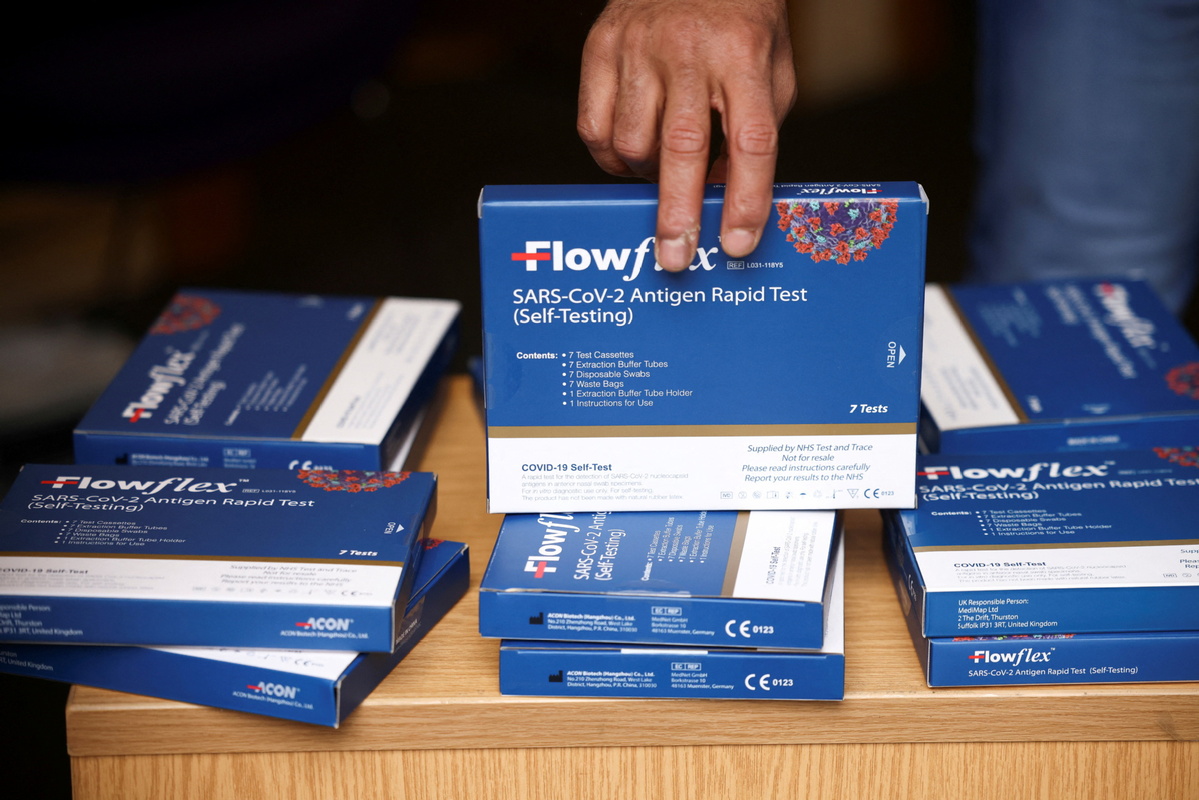Blood clots 'more likely' after COVID-19 infection
By EARLE GALE in London | China Daily Global | Updated: 2022-04-08 09:24

People who recover from a COVID-19 infection are at risk of developing serious blood clots for up to six months, according to scientists from Umea University in Sweden.
After studying the records of more than 1 million people who were infected between February 2020 and May 2021, and comparing them with the records of 4 million people who did not have an infection, the researchers proved the elevated risk.
In the latest edition of the British Medical Journal, they wrote that those at most risk of developing post-COVID clots should be offered medicine preemptively, to mitigate the danger.
They concluded the risk of developing deep vein thrombosis, which is a blood clot that usually forms in the leg, remains "significantly increased" for three months after a COVID-19 infection. The chance of having a pulmonary embolism,which is a blood clot in the lung, is elevated for six months.
The team said people who recover from a severe COVID-19 illness and those with underlying health problems are the most at risk of developing subsequent blood clots.But they noted that people who have mild cases that do not need hospital treatment are also at more risk of developing clots than they would have been, had they never had an infection.
The researchers also found that vaccinations seemed to make clots less likely.
"Our findings arguably support(preventative treatment) to avoid thrombotic events, especially for high-risk patients, and strengthen the importance of vaccination against COVID-19," the team wrote.
The study essentially proved the risk of developing a blood clot as an unvaccinated person recovering from COVID-19 is far greater than the extremely slim chance of getting a clot at the time of having a vaccine, a tiny risk that has persuaded some people not to get jabbed.
Anne-Marie Fors Connolly, principal study investigator, said: "For unvaccinated individuals, that's a really good reason to get a vaccine -the risk is so much higher than the risk from vaccines."
The team calculated that, in the 30 days after an infection, people are five times more likely to have a deep vein thrombosis, 33 times more likely to have a pulmonary embolism, and almost twice as likely to have internal bleeding - such as a stroke - than they would have been without having had an infection.
Previous studies have shown a COVID-19 infection raises the risk of a person developing blood clots, but the Swedish study shows the risk remains for far longer than first thought.
The news comes as the United Kingdom grapples with a significant spike in COVID-19 infections, with more people currently infected than at any time during the pandemic.
The high rate of infections has led to 20,398 people being in hospital with the disease as of Monday, the most in the past 13 months.
























